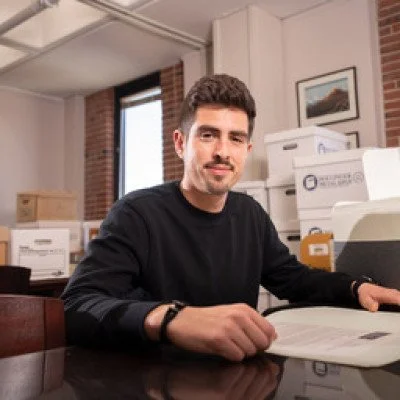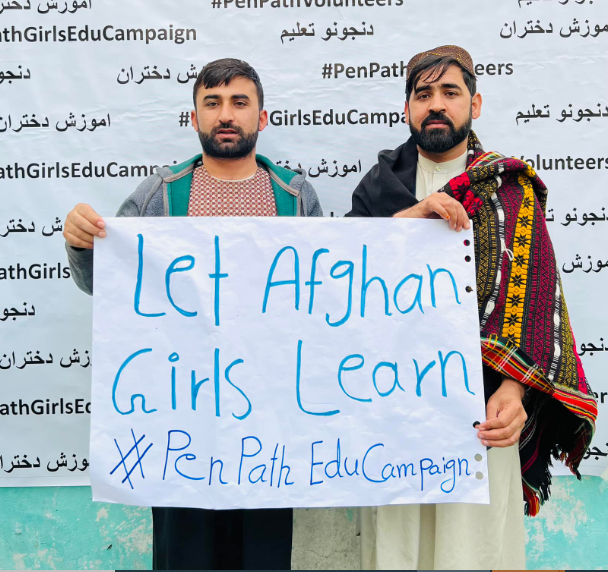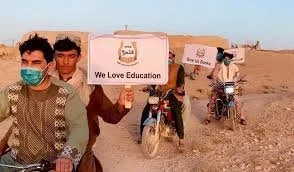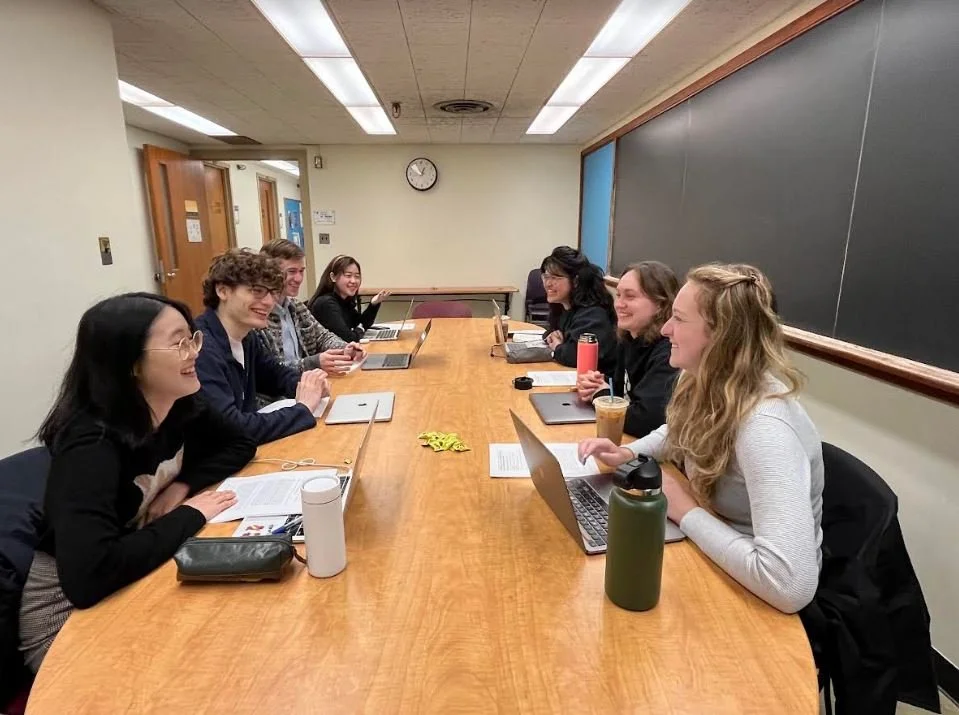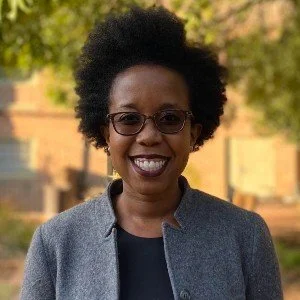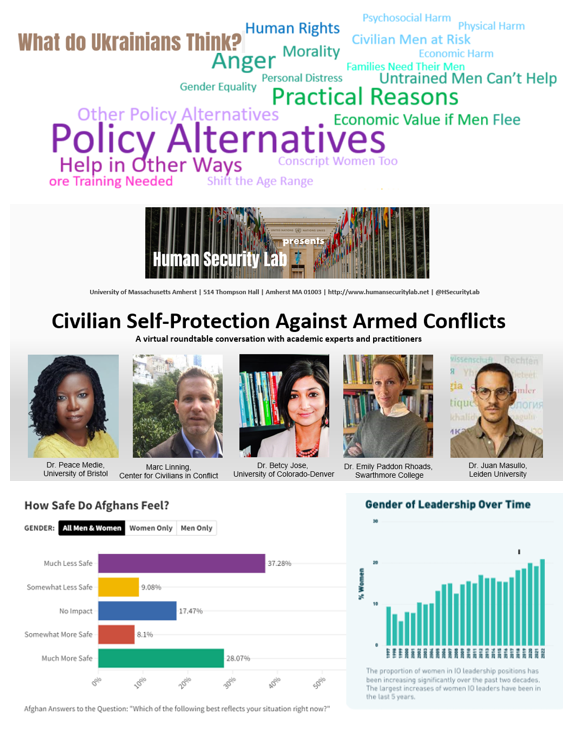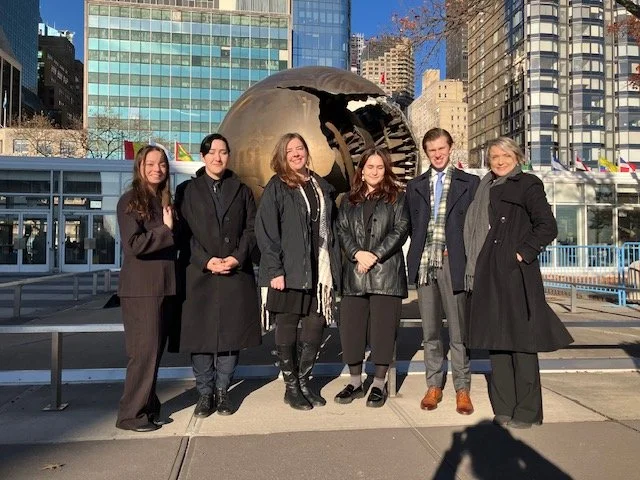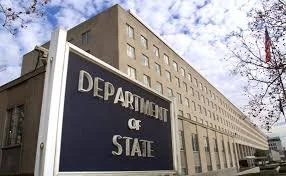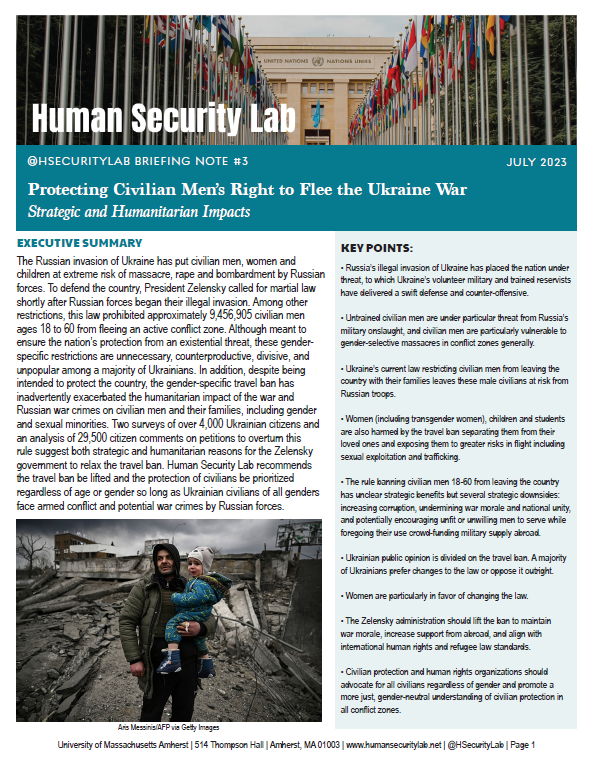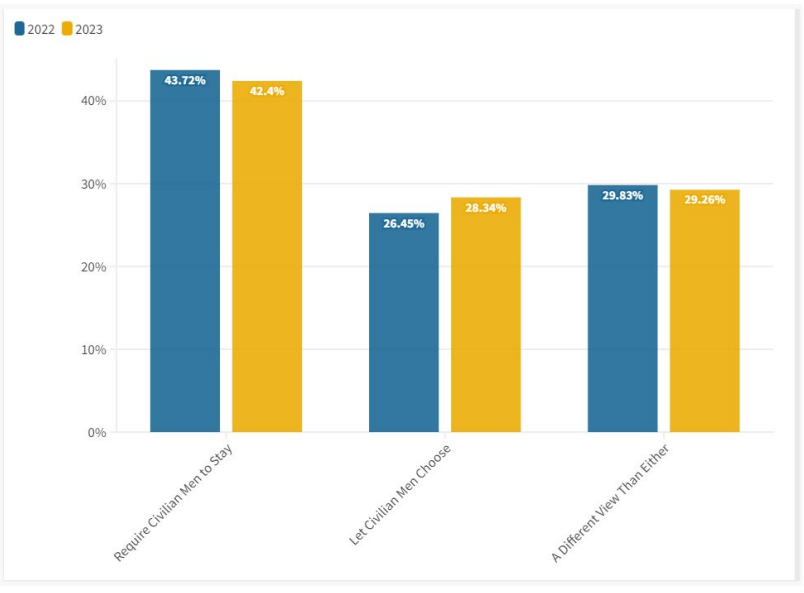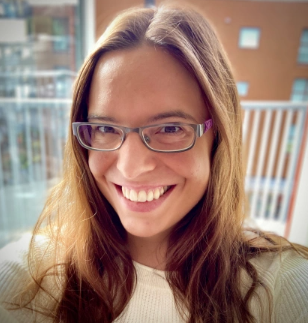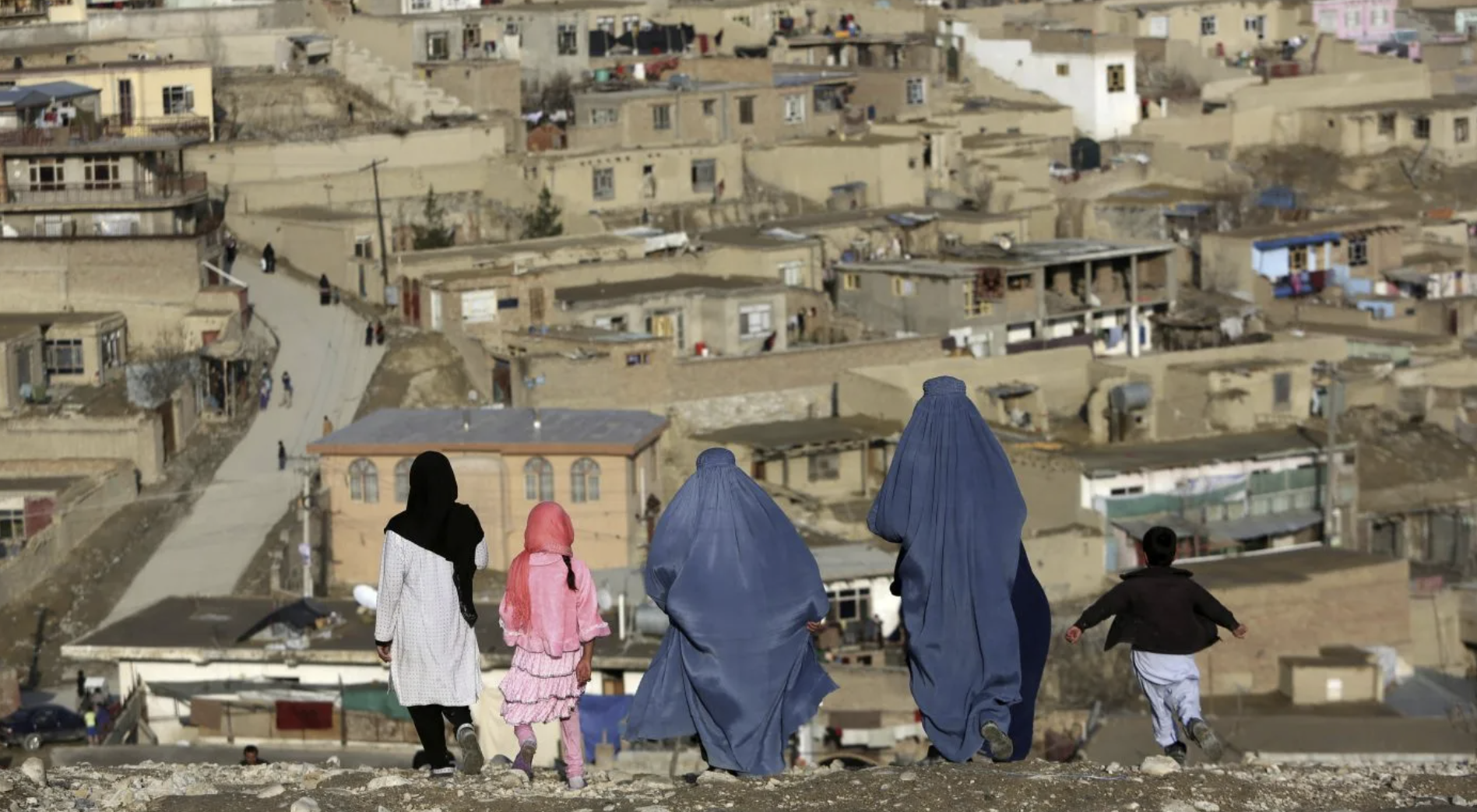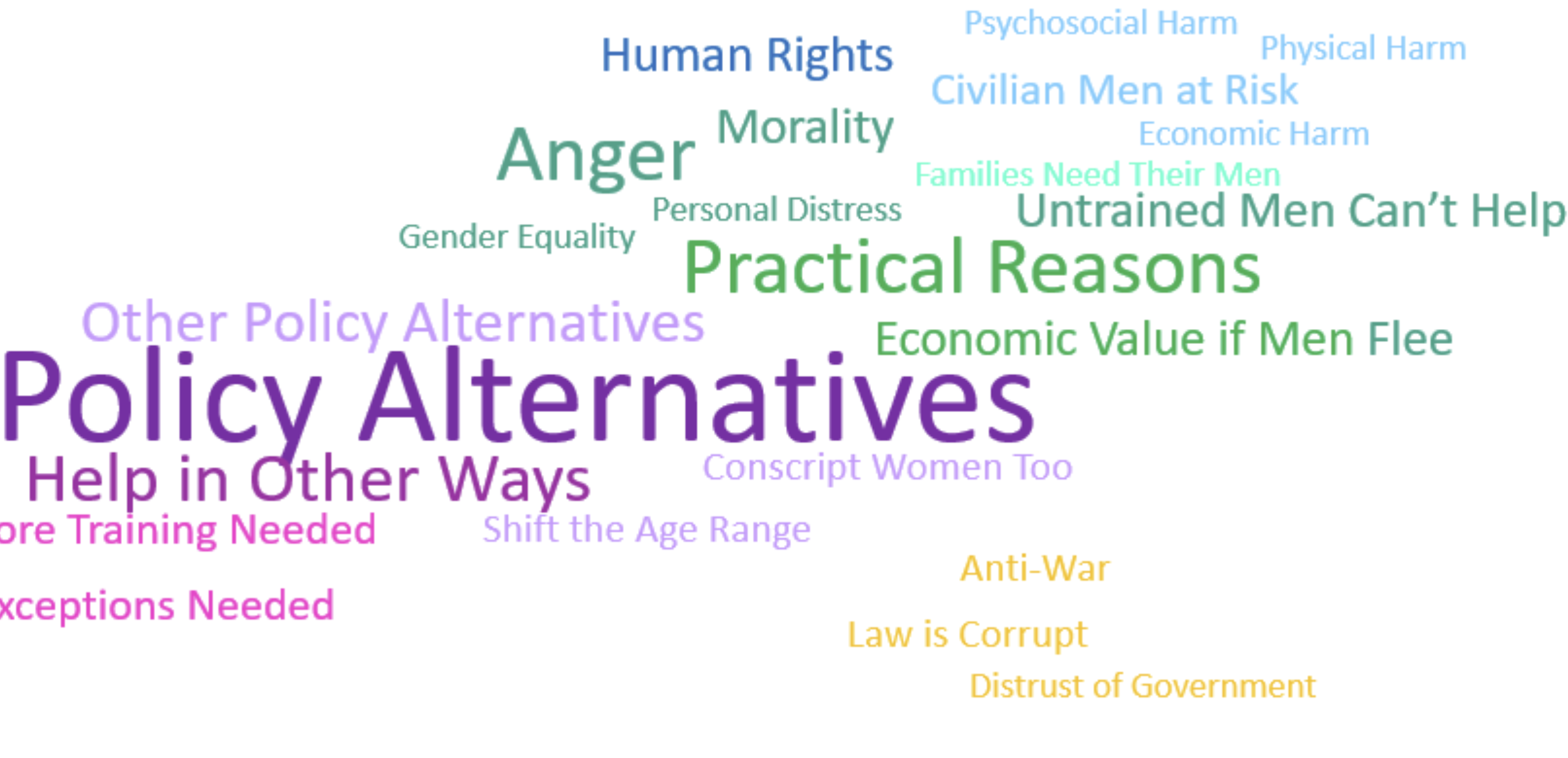
News
A new analysis of Human Security Lab polling data finds both Republican and Democratic troops believe in upholding the Constitution and international law.
80% of active-duty US military understand moral and legal duty to uphold US Constitution, human rights and humanitarian law, new Human Security Lab poll shows.
A Human Security Lab / YouGov poll documented a 10 percentage point drop as bombing campaign played out. The results were published in the Bulletin of the Atomic Scientists this week.
The grant will support Santoso’s dissertation work on effective messaging in the climate security space.
Retired Lt. Colonel Edward H Carpenter, former Chief of Policy and Planning for the UN Mission in South Sudan, shared insights from his new book Blue Helmet.
Human Security Lab’s early research findings show treaties like this one can change citizen attitudes on the lawfulness of nuclear weapons.
Ross’ dissertation will examine the shifting views of the early atomic scientists on whether nuclear use would constitute genocide.
In her talk to students, Amanda McCorkindale spoke about the gap between global bureaucracies’ view on humanitarian needs and those of civilians on the ground.
The US military feels even more strongly about nuclear safeguards in some regards than does the general population, Human Security Lab’s latest survey finds.
Civilian men should be permitted to leave; Ukraine’s martial law should be reconsidered, the authors say.
The first scientific paper from the Lab’s “Afghan Voices” project shows fathers who think about their eldest daughters before answering survey questions are especially supportive of women’s rights.
The new research will study the views of US active-duty servicemembers and veterans on the military utility and lawfulness of nuclear weapons.
Jenna Norosky’s article on understandings of conflict-related sexual violence at the international level was published in International Feminist Journal of Politics.
The judge will speak about the terrorism case, genocide case and the ICJ’s role in international law.
Fathers of eldest daughters are particularly susceptible to advocacy on behalf of women’s rights, the study finds.
The students are assisting with research design and grant applications for new survey experiments on key global and human security issues.
The workshop connects Five Colleges International Relations faculty and scholars across UMass interested in human security, broadly defined, and the challenges of addressing the global public good.
Human Security Lab continues tradition of science-informed policy engagement bridging elite and citizen divides.
The nuclear ban treaty has the potential to change attitudes, the research shows.
Rising undergraduate researchers assist with policy-relevant scholarship at Human Security Lab.
Researchers presented new survey findings to government officials.
Ukrainian women are particularly opposed to continuing the travel ban, according to the latest Human Security Lab survey.
Women are particularly unlikely to support continued restrictions on men, and especially likely to suggest alternative policy options.
Ms. Hughes has served on the Afghanistan, Ukraine and nuclear disarmament projects and will join the team co-authoring the Lab’s newest report on Taliban-controlled Afghanistan.
The partnership will fund students and former students to assist in analyzing the effects of the nuclear ban treaty on American attitudes toward nuclear weapons.
University of Oslo’s Anne-Kathrin Kreft presents new research on the protection of civilian men in armed conflicts on May 25 at 1pm.
On International Women’s Day, Human Security Lab released new preliminary data on Afghan citizens’ views of gender equality.
The Lab’s research aims to elevate Ukrainian voices in the conversation about the humanitarian and strategic effects of the martial law which has been in place for nearly a year.
The Human Security Lab at UMass-Amherst supports a community of researchers and students identifying pathways to freedom from fear (violence, conflict, human rights abuse); freedom from want (economic security, food security, climate security, health security); and exploring the science of science in global and human security in partnership with researchers, stakeholders and practitioners across the globe.
Who We Are

What We Do
The Human Security Lab at UMass-Amherst convenes international working groups of academic and practitioner experts around understudied issues in human security; engages, collaborates and consults with human security practitioners, stakeholders and civil society groups to identify, amplify and address understudied research questions; implements, visualizes and disseminates innovative research through interdisciplinary student-faculty teams; and puts the academy and practitioner world in dialogue through webinars, consultancies, briefing notes and visually engaging science communication.

What is Human Security?
The concept of “human security,” originally articulated by UN Secretary General Boutrous Boutrous Ghali, puts the well-being of vulnerable populations, rather than protection of state borders, at the center of security thinking. With the onset of the COVID-19 pandemic, the transnational nature of threats to human security and the value of strong global architectures in the human interest has become increasingly evident to governments, global policy-makers and, and bilateral donors.






